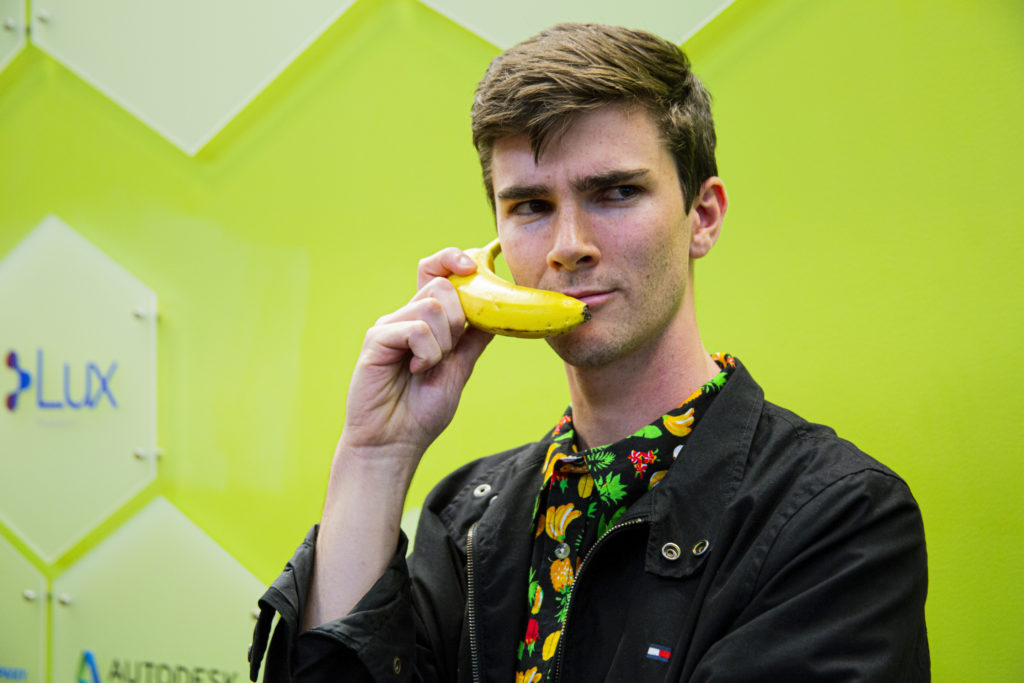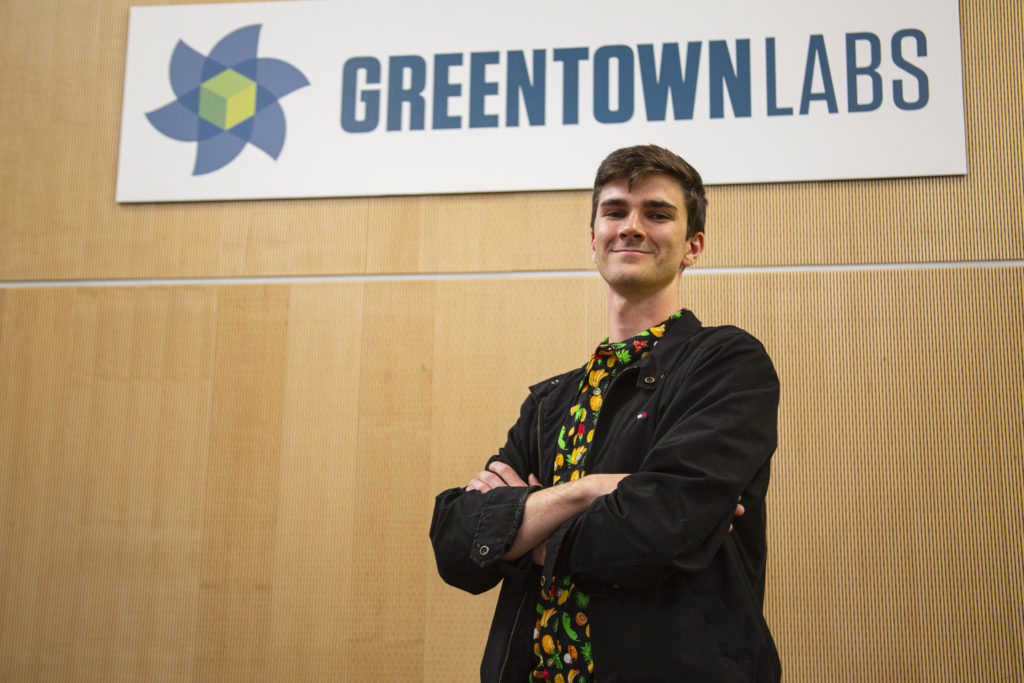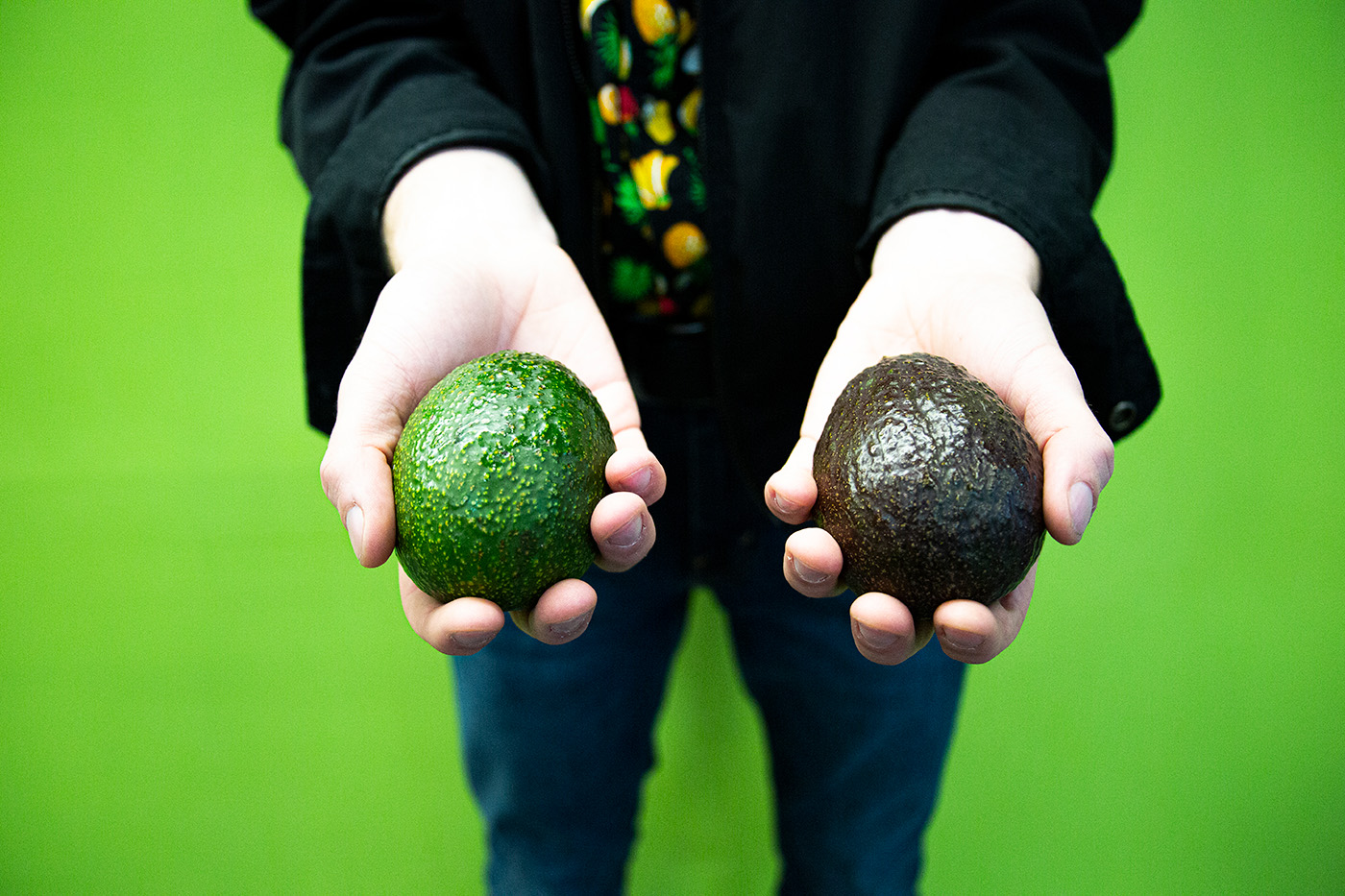Kevin Coghlan is holding two avocados. One is a ripe dark green, while the other is clearly lighter and fresher. Yet two days ago, these avocados were identical. How is this possible?
The answer lies in a food science-based startup in Somerville, MA. Cambridge Crops, where Coghlan works as a co-op, is developing silk-based solutions to extend the shelf life of foods. The coating creates a barrier that helps keep moisture in and gasses and bacteria out.
And it’s not just for avocados: the goal is to be able to apply it to everything from chocolate bars to meat. Getting there, however, is a long process.

Coghlan holds a banana coated in Cambridge Crops’ food preservation solution. Photo by John McCarthy/College of Science
Those lofty goals mean expecting significant contributions from every one of the members of the Cambridge Crops team. Since early into his co-op, Coghlan has been running lead on projects, and when a huge shipment comes in at four o’clock on a Friday, even the CEO chips in.
“It’s more like almost a family aspect,” Coghlan says of the team dynamic. “It’s a lot of playing off of each other, trying to make sure that we’re succeeding as a team.”
Much of Coghlan’s day to day work involves testing different versions of the coating to isolate and characterize the most desirable properties of these solutions. This means ensuring the product is up to standards and behaves as it should.
Another key part of the process are actual food studies. Some of those studies involve gathering a selection of samples, like those avocados, and coating one half, while leaving the other half uncoated.
The process of getting those samples involves some of the more unconventional parts of Coghlan’s job. Samples are usually shipped directly from growers, partners, and retailers; however, sometimes they must be bought at a grocery store for a quick initial study. Coghlan is usually the one doing the buying.
“There’s one time I was heading a study for pineapples,” he recalls. “So I had to walk into a store, go to the produce guy and say, do you have forty pineapples? And at that moment I was like, I am the guy in the math problems.”
Even with the occasional juggling act in the checkout line, Coghlan says the work and responsibility keep him energized.
“I’m looking forward to just continuing a lot of the studies that I’ve been doing. These studies have become a culmination of all the work that I’ve done here, and I really want to see them succeed,” he explains. “If I could get our studies to a point where it’s impressing a lot of people in the food industry, that’s something that I take away as this is a quantifiable thing that I did on my co-op to help this company succeed.”
It’s that kind of opportunity for independence and initiative that Coghlan says has fine-tuned his problem-solving skills. Anything that comes up in his studies, he has to figure out himself. The experience has inspired him to look into working towards a PhD after graduating, something that would be a natural extension of his research experience on co-op.
It’s not just about the work itself though, according to Coghlan. One of his favorite things about working at Cambridge Crops is the team. As much as the research is important to him, he emphasizes that “finding an environment you work in and team you work well with is extremely important and often overlooked.”


